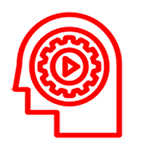Is Generally Defined as the Science of Human Behavior?
Introduction:
Is Generally Defined as the Science of Human Behavior?
Understanding human behavior is critical in various variables of life, from relational connections to hierarchical elements. It includes a multidisciplinary approach, drawing bits of knowledge from brain science, social science, human studies, and different fields. In this article, we dive into the depths of the technology of human behavior, exploring its definition, historical roots, theoretical views, sensible packages, and future directions.
What is the Science of Human Behavior?
At its core, the technology of human behavior seeks to recognize the complexities of human actions, thoughts, and emotions. It examines styles, motivations, also, impacts that shape character and collective behaviors. This interdisciplinary subject integrates insights from psychology, social science, human sciences, and neuroscience to offer a far-reaching comprehension of human behavior.
Historical Background
They observe of human behavior strains back centuries, with historical philosophers thinking about the intricacies of human nature. However, it wasn’t till the emergence of present day psychology and sociology in the past due nineteenth century that methodical inquiries into human conduct started. Visionaries including Sigmund Freud, B.F. Skinner, and Emile Durkheim laid the basis for modern-day tactics to information human behavior.
Theoretical Perspectives
Psychological theories, like behaviorism, analysis, and mental cognitive psychology, offer diverse frameworks for interpreting human behavior. On the humanistic front, viewpoints like functionalism, struggle hypothesis, and emblematic interactionism shed light on societal influences on individual activities.
Applications in Various Fields
The technological science of human behavior unearths programs in various domain names, along with scientific psychology, organizational conduct, advertising and marketing, and public coverage. By deciphering human motivations and choice-making procedures, experts can devise effective interventions and techniques tailored to particular contexts.
Understanding Human Behavior in Psychology
In psychology, the study of human behavior envelops different subfields, for example, behavioral psychology, which focus around detectable activities and their support patterns, cognitive psychology, which investigates mental processes like discernment and memory, and developmental psychology, which looks at the life expectancy changes in behavior.
Sociological Insights into Human Behavior
Sociologists analyze how social structures, institutions, and cultural norms influence human behavior. Through the lens of socialization processes and societal expectations, they unravel the complexities of interpersonal relationships, group dynamics, and societal changes.
Impacts of Culture and Society
Culture assumes a huge part in significantly shaping human behavior, impacting standards, values, and social practices. Societies create frameworks that direct satisfactory ways of behaving and attitudes, shaping individuals’ identities and interactions within the community.
Interdisciplinary Approach
The interdisciplinary nature of the technological know-how of human conduct fosters collaboration across diverse fields, permitting a holistic knowledge of human dynamics. By integrating insights from psychology, sociology, anthropology, and neuroscience, researchers benefit in complete views on human conduct.
Challenges and Controversies
Debates persist in regard to relative contributions of nature and support to human behavior, with defenders of every perspective pushing for unmistakable clarifications. Ethical considerations also arise in research involving human subjects, prompting discussions on informed consent, privacy, and the potential impact of studies on participants.
Research Methods
Specialists utilize different strategies to research human way of behaving, going from quantitative overviews and analyzes to qualitative interviews and observations. Each approach offers unique experiences into various parts of human behavior, enhancing our understanding of the complexities involved.
Practical Applications
The bits of knowledge gathered from the study of human behavior have practical implications across various domains. In clinical settings, specialists use psychological principles to analyze and treat mental health disorders. In policymaking, understanding human way of behaving informs decisions related to social welfare, education, and healthcare.
Future Directions
As innovation advances and society develops, new roads for concentrating on human way of behaving arise. Arising fields like computational sociology and neuroeconomics leverage innovative methodologies to explore human behavior in unprecedented ways. The future holds promise of breakthroughs that will develop how we might understand what drives human actions and decisions.
Conclusion
The study of human behavior fills in as a foundation in our journey to understand ourselves and our general surroundings. By disentangling the complexities of human activities, considerations, and emotions, specialists across disciplines contribute to a more nuanced comprehension of being human. As we keep on exploring the depths of human behavior, we prepare for bits of knowledge that can improve lives and shape a superior future.
FAQs For Is Generally Defined as the Science of Human Behavior?
1. What is the importance of analyzing human behavior?
Understanding human behavior facilitates us realize ourselves and others, facilitating powerful communication, selection-making, and interpersonal relationships.
2. How do psychologists and sociologists approach the look at of human behavior differently?
Psychologists recognition on person mental tactics and behaviors, while sociologists study how societal factors form conduct on a broader scale.
3. What are a few ethical considerations in getting to know human conduct?
Ethical concerns encompass making sure informed consent, protective contributors’ privacy, and minimizing harm or discomfort throughout studies.
4. How does lifestyle have an effect on human behavior?
Culture dictates norms, values, and social practices, shaping individuals’ beliefs, attitudes, and behaviors within a society.

